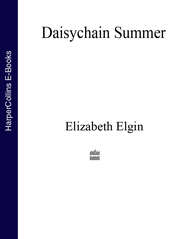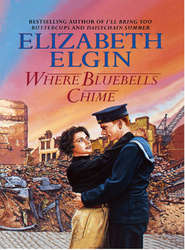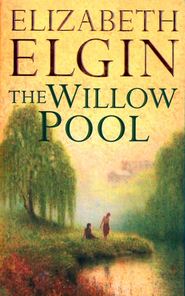По всем вопросам обращайтесь на: info@litportal.ru
(©) 2003-2024.
✖
One Summer at Deer’s Leap
Автор
Год написания книги
2018
Настройки чтения
Размер шрифта
Высота строк
Поля
‘Hullo! You don’t know me, but not so long ago I met a ghost who was once in love with you! Over fifty years ago, mind, but I think you should know he still needs to find you. His name is Jack Hunter.’ And the poor old thing would look at me vacantly and say, ‘Jack who?’
I tied my dressing gown tightly around me, glad of the warmth, and switched on the kettle. Then I fed the animals, after which Lotus walked ahead of me, tail erect, indicating at the conservatory door that she wished to spend the morning in there. She was quite intelligent I had to admit, and lost no time showing me where she was in the habit of sleeping on wet mornings.
The view from the kitchen window was a forlorn one. Plants dripped miserably and a mist covered everything, blocking out the view – even the white-painted gate. I decided to bring in logs and light the kitchen fire, then realized that not even that would inspire me to words, for this was not a morning for creativity. I didn’t have word block. There really is no such thing. As far as I am concerned, when the words won’t come it is because I simply don’t want to write!
Having established that, my conscience refused to let me sit idly over a fire, curled up with a book. I would drive to Clitheroe instead. I needed to visit the library to check on something I wasn’t at all sure about; I would find it there, in Encyclopaedia Britannica, I was certain, but just in case I needed to borrow any books for research while I was staying at Deer’s Leap, Beth had left me her library ticket. Decent of her, really. And I must buy a couple of trout to replace those we had eaten for Sunday lunch. Raiding Beth’s freezer was not on! Maybe, too, I would buy sausages and bacon and have a comforting fry-up tonight – sitting at the kitchen table beside a comforting fire. After all, a writer needs some time to herself, though my professional conscience would insist I get down to work this afternoon when I got back.
I found a car park in Clitheroe with no trouble. Immediately inside the library, I told myself that once I had established that Dorcas in Firedance, as I was beginning to know the book, could have used a phonecard in 1985, I would leave at once. Indeed, I discovered that phonecards were in use as long ago as 1981, and would have cost two pounds for forty units. I was glad I had checked. You have to be so careful. Errors are jumped on at once!
Even though I had already made up my mind not to browse along the shelves, I began to look at the section headed ‘World Wars One and Two’. I walked slowly, willing myself not to pick up a book; not even for one quick glance.
Books with tanks, aircraft and submarines on their jackets tempted me, but I walked on. Not until novel number three, which I was almost sure now would be set in that period, would I start dipping into Jack Hunter’s war. Yet even as I walked away something hit my consciousness and said, ‘Look again!’ So I obeyed the tingling at the back of my nose, and did exactly that.
Bomber Command. The title stood out clearly. RAF Bases in Lancashire 1939–1945. As I picked it off the shelf, I knew that RAF Acton Carey would be listed there, even though hardly a trace of it existed now.
I made for the desk, determined not so much as to glance at it until tonight when I had had my supper and my time was my own. Supper! I bought sausages from a shop near the castle ruins, then crossed the road to buy rainbow trout. As I walked to my car, I realized the rain had stopped and that a sliver of blue sky had appeared somewhere in the direction, I calculated, of Beacon Fell. I might have known, I smiled, that rain so heavy, so early, couldn’t last.
I resisted the urge to buy a coffee, knowing that if I did I would open the book. Thoughts of that war would invade my mind, and I had already spent too much time thinking about the airman. And I had Suzie to worry about now; Susan Smith who might well be there for the finding! Oh, please, she would be?
I existed on a sandwich and far too many cups of coffee until nearly five o’clock. The garden looked green, the scent of wetness wafting in through the open window. The earth was dark again, having guzzled its fill, and all was well with my world.
I gathered up my papers, turned off the machine, then stretched long and lazily. The flow had returned, the lost morning atoned for. I felt almost smug as I let Hector into the yard.
First I would feed the animals and cook my supper. Then I would allow myself the luxury of a log fire and curl up with the book, hoping it would tell me something, however small, about how it had once been, at RAF Acton Carey.
I pricked sausages and rinded bacon. I would make fried bread too, I thought defiantly. I felt so pleased with my progress, one way or another, that I knew I would finish the bag of toffees as well, once I was relaxed in the firelight. I felt so good that I fixed the telephone on the dresser with my eyes, willing it not to dare ringing.
I should have let well alone. Five minutes later it rang.
‘Yes?’ I hoped I didn’t sound too cross.
‘Hi, love! It’s Jeannie. Thought I’d ring you before I left the office. I am expected, tomorrow?’
‘You are, but this last week has flown! Same train, is it? Will I meet you at Preston …?’
‘I’m so looking forward to it. Don’t bother making a meal. I’ll eat on the train. How’s the book coming along?’
‘Fine. It poured down, this morning, so I went to the library.’
‘Rain?’ She sounded put out.
‘Yes, but it’s cleared up now. We’ll have another good weekend. Anyway,’ said the market gardener’s daughter in me, ‘we needed a good shower.’
‘Anything I can bring, Cassie?’
‘Just yourself. See you tomorrow night.’
The fire flickered and snapped. Hector lay sleeping at my feet; Tommy, mesmerized by the fire, blinked and stretched and yawned. By my side was what remained of the bag of toffees; on the arm of the sagging old chair lay the book I had been longing to open since it shouted ‘Pick me up!’ from the library shelf.
First, I fanned the pages, stopping here and there to look at what had once been amateur snaps of crews and aircraft, and diagrams and plans of airfields – aerodromes, the compiler of the book called them.
By far the most important parts, as I saw it, were the runways and the control towers. The perimeter tracks – which ran right round each airfield – and various blocks of buildings were further away and lower in the order of things, it would seem. I turned to the index. What I sought was there, on page ten.
RAF STATION ACTON CAREY. Completed Oct. 1943. Aircraft consisted two squadrons of Lancaster bombers, Marks I & II.
There followed a history of all the raids from Acton Carey; which shipyard or factory or docks had been targeted and how many bombers were missing after each one. The operations flown from Acton Carey had been many. Each Lancaster carried a crew of seven, and seven young lives became statistics with each bomber that did not return.
I remembered the memorial outside the church, the grateful remembrance and the date. Then I scanned the list of sorties.
On 2 June 1944 a flying bomb site in France had been targeted, and on 3 June another site at Mont Orgueil. Then, right up until 6 June, marshalling yards in France had been raided every night.
And then it was there – 8 June 1944. Flying bomb site at St-Martin-Le-Mortier; a daylight raid on which four Lancasters were lost; one of them piloted by Sergeant J. J. Hunter.
I tried to remember what I knew about flying bombs; bombs with wings, hadn’t they been, and launched from France against the south coast and London? Hitler’s secret weapon; one which would wipe out the D-Day landings and bring Britain to its knees.
And Jack Hunter had dropped his bomb load on one of the launching sites, because until they were destroyed they were a very grave danger to this country. My history lessons in the sixth form had told me that, yet now I was looking at a list no longer impersonal, and I knew when and from where our bombers took off on so urgent a mission; knew too the name of one of the men who did not return from it.
Jack Hunter. Twenty-four years old and in love with Susan Smith from Deer’s Leap farm, who met him secretly at the creaking kissing gate. Did he ever get to meet her parents, I wondered, or were Jack and Susan never to see each other again?
I read on, fascinated to learn that on 15 July 1944, RAF Acton Carey had been handed over to the United States Army Air Corps, who flew daylight missions from there until the end of hostilities in Europe – VE Day. Those huge American Flying Fortresses needed longer runways to take off and land, and what remained of Deer’s Leap fields had been absorbed into the airfield.
Yet now Deer’s Leap was once again a place of tranquillity. All that was left were memories, a war memorial in a quiet village – and the ghost of a pilot who waited for his girl; had been waiting for more than fifty years.
Near to tears, I closed the book with a snap. It was history now, I insisted; had ended when my mother was a baby. It was nothing at all to do with me, so why was I thinking about it every spare moment I had? Why did I feel the need to find Susan Smith?
I had no way of knowing. All I could be certain of was that Jack Hunter had latched on to me as his only hope, and I could not let him down.
‘I lit a fire last night,’ I said to Jeannie as I stowed her bags in the car boot. ‘The house seemed a little cold, after the rain. Shall we light one tomorrow night? I’ve got a bottle of wine – or would you like to go to the Rose again?’ I said off-handedly, though I was desperate to talk to Bill Jarvis.
‘Go on the bikes, you mean? I’d love to, Cassie.’
‘So would I, actually.’ The relief in my voice was obvious. ‘And we’d be better at it this time. Cycling uses up four calories a minute, did you know?’
‘Big deal,’ Jeannie grinned, because she ate whatever she fancied and didn’t put on an ounce.
‘Bill Jarvis might be there. I’d like to talk to him again.’
‘It’ll cost us, Cassie. Bill never does owt for nowt!’
‘It’ll be worth it. I want to talk to as many of the old ones as I can – get them to tell me how it was when they were young. Money well spent!’
I indicated right at the next set of lights, taking the Clitheroe road. Soon we would be driving through Acton Carey; passing a clump of oak trees and the spot at which I first met Jack Hunter. I wondered if I wanted him to be there tonight when Jeannie was with me, and decided I did not, because Jeannie might not even know he was there. Not everybody can see, or even sense ghosts.
The matter didn’t arise, though. We drove past the oaks and The Place without incident and when she got out to open the white gate for me, I had time to take a look at the kissing gate. He wasn’t there, either.
‘Thanks, chum,’ I whispered as Jeannie waved me through; thanks, I meant, to Jack Hunter for not being there. After all, he was taboo, wasn’t he?
Jeannie took her bags upstairs whilst I made a pot of tea.











